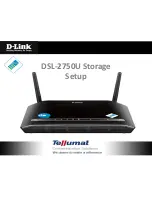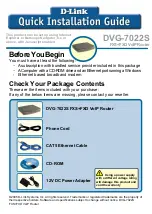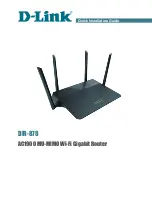
Chapter 5
159
Defining Connectivity Components
Defining Link Stations
By default, the dial string is sent to the modem at the
rate of 1200 bits per second (the default baud rate)
using asynchronous communications. You can match
the baud rate to the modem's baud rate by placing one
of the following numbers (enclosed by parentheses) in
front of the dial string:
•
1
(300 baud)
•
2
(600 baud)
•
3
(1200 baud)
•
4
(2400 baud)
•
5
(4800 baud)
•
6
(9600 baud)
•
7
(19200 baud)
For example, you can specify a 9600 baud rate dial
string by entering
(6)
, as follows:
(6)AT &&D3 &&Q1 DT7,012345678
For details of the rest of the dial string, refer to your
modem's documentation.
Additional Link Station Parameters for Token Ring, FDDI
and Ethernet.
MAC address
The MAC address of the remote station, entered as a
series of hexadecimal digits. The MAC address
uniquely identifies the adapter card on the remote
system.
If you do not know what value to use, consult your SNA
network planner.
If the remote end of this link is a VTAM host, you can
find its MAC address in the MACADDR= parameter of
the VTAM Port definition.
If you are configuring a link to an AS/400 system, the
MAC address is the ADPTADR parameter in the Line
Description.
SAP number
The SAP number of the port on the remote computer.
The SAP number distinguishes between different links
using the same adapter card. This is a hex number,
normally
04
. It must be a multiple of 4.
Summary of Contents for HP-UX SNAplus2
Page 4: ...4 ...
Page 14: ...14 Contents ...
Page 22: ...22 ...
Page 23: ...23 1 SNA Terms and Concepts ...
Page 65: ...65 2 Introduction to SNAplus2 ...
Page 107: ...107 3 Administering SNAplus2 ...
Page 132: ...132 Chapter3 Administering SNAplus2 Using the Command Line Administration Program ...
Page 133: ...133 4 Basic Configuration Tasks ...
Page 142: ...142 Chapter4 Basic Configuration Tasks Configuring Logging ...
Page 143: ...143 5 Defining Connectivity Components ...
Page 167: ...167 6 Configuring Dependent LUs ...
Page 174: ...174 Chapter6 Configuring Dependent LUs Defining LU Pools ...
Page 175: ...175 7 Configuring APPC Communication ...
Page 208: ...208 Chapter7 Configuring APPC Communication Configuring APPC Security ...
Page 209: ...209 8 Configuring User Applications ...
Page 222: ...222 Chapter8 Configuring User Applications Configuring RJE Workstations ...
Page 223: ...223 9 Configuring Passthrough Services ...
Page 235: ...235 10 Managing SNAplus2 from NetView ...
Page 248: ...248 Chapter10 Managing SNAplus2 from NetView Using UCF ...
Page 249: ...249 11 Managing SNAplus2 Clients ...
Page 300: ...300 Chapter11 Managing SNAplus2 Clients Managing HP UX Clients ...
Page 301: ...301 A Configuration Planning Worksheets ...
Page 337: ...337 B APPN Network Management Using the Simple Network Management Protocol ...
Page 343: ...343 C Configuring an Invokable TP Using snaptpinstall ...
Page 353: ...353 D Using SNAplus2 in a High Availability Environment ...
















































